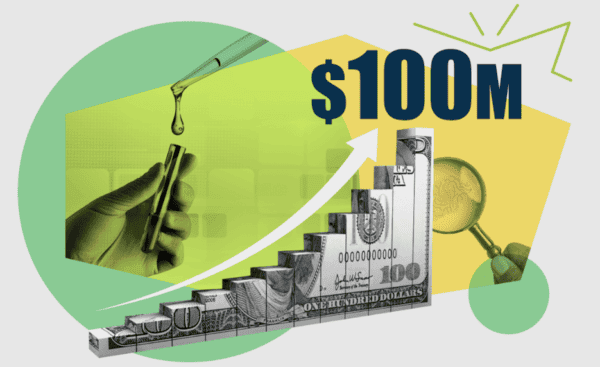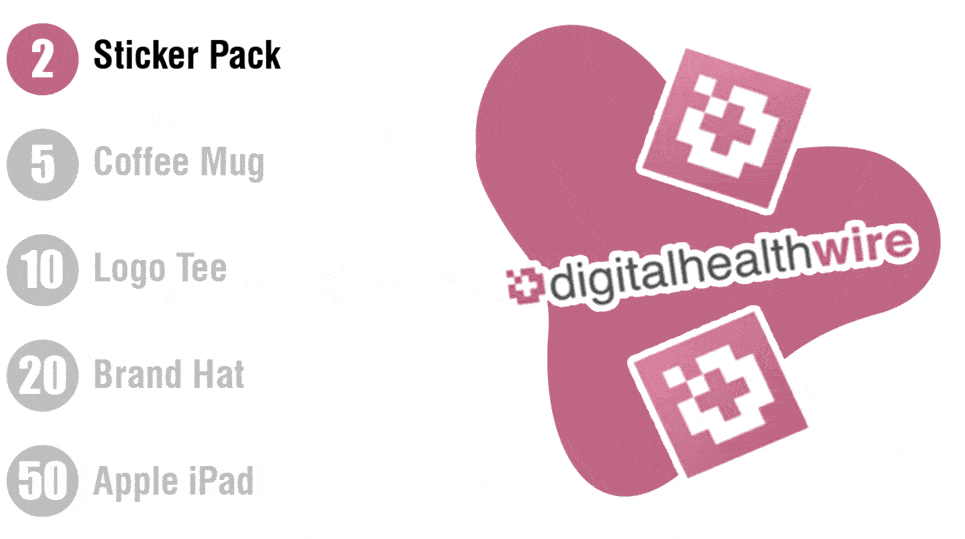|
Health Tech Benchmarks | Babylon Goes Private
May 11, 2023
|
|
|

|
|
Together with
|

|
|
|
“Cross-industry comparisons have also fueled our industry’s scope-creep problem, with too many organizations trying to be something they’re not. We’re not Amazon; we can’t perfectly predict the timing in which we’ll deliver care, as if it’s a book.”
|
|
SCAN Group CEO Sachin Jain, MD
|
|

|
|
Bessemer Venture Partners recently put out a top-tier blog post outlining how to scale a health tech business to $100M in annual recurring revenue (ARR) and the benchmarks to look out for along the way.
We won’t dive into the full finance lesson, but here’s an overview of the key benchmarks Bessemer gave to help understand how top performers compare to similar companies.
Every company is different, but Bessemer segments health tech businesses into two main buckets.
- Healthcare SaaS – Cloud-based software alongside data and analytics with highly recurring revenue. Examples include Doximity, Mindbody, and Veeva.
- Tech-Enabled Services – Care or navigation support to patients via either B2B2C or direct-to-consumer models. Revenue is mostly recurring from either an enterprise or consumer via subscriptions. Examples include Hims & Hers, Livongo, and Accolade.
It takes roughly a decade to reach $100M in ARR across most health tech businesses. However, tech-enabled services businesses scale to their first $10M ARR in an average of three years, whereas healthcare SaaS businesses take an average of six years due to longer sales and implementation cycles.
Growth slows as companies scale their ARR. Bessemer found that both business categories see revenue growth of over 200% until $10M ARR, and each grow half as fast by the time they reach $25M ARR. Tech-enabled services grow faster than SaaS at every step.
Improving margins unlocks scalability. Tech-enabled services businesses steadily improve gross margins as they scale due to several factors (pricing power follows proven outcomes, tech improvements improve care quality, provider panels get more efficient). Healthcare SaaS businesses see more stable 65-70% gross margins across all stages.
The Takeaway
Bessemer’s full analysis breaks down pretty much every metric a health tech startup could ask for to inform their scaling decisions, but the three charts above give a quick snapshot of top performers. For a full benchmark overview by company size, make sure to bookmark these cheat sheets for Healthcare SaaS and Tech-Enabled Services.
|




|
|
Medallion Unites Family Care Center’s Credentialing Process
As Family Care Center set out to expand its behavioral health services, it needed a scalable provider credentialing solution so that its staff could keep focusing on patient care. Find out how Medallion’s CAQH-integrated platform helped Family Care Center onboard its providers faster by letting them complete their applications in two days instead of two weeks.
|
|
Clear Arch Health Reduces Readmissions at Altru
When Altru Health System set out to reduce hospital readmissions, it turned to Clear Arch Health to find the solution. Learn how Clear Arch Health’s complete RPM platform and clinical monitoring system helped Altru lower readmissions while improving post-acute care quality.
|
|
Save Time & Minimize Risk with connectRN
connectRN takes the work out of hiring at scale. connectRN’s W2 staffing solution protects you and your business from liability. Plus, their credentialing team handles everything from state licensure to background checks, and you’ll have access to it all via their user-friendly platform. Learn more.
|
|
- Babylon Goes Private: Babylon’s two-year stint as a public company is coming to an abrupt end after securing $34.5M in “interim funding” from AlbaCore Capital to take the company private. After making its NYSE debut via a $4.2B SPAC merger in 2021, Babylon’s revenue growth wasn’t enough to offset the expensive capital raised during its SPAC “mistake.” Babylon remains committed to building out its digital-first primary care service, but after reporting a Q1 loss of $63M (vs. $29M in Q1 2022), the turnaround’s going to take more than a delisting.
- Hold The Phone: An in-depth report on appointment booking from Notable highlighted how far self-scheduling still has to go to meet patient expectations. One of the headline stats was that 40% of providers schedule 80% of patient appointments by telephone, while only 29% of providers report that over a tenth of their visits are self-scheduled by patients. More than 60% of patients felt that their provider’s digital tools don’t meet their expectations, which isn’t too surprising considering nearly two-thirds of patients still receive phone calls after online scheduling.
- Optain Launches Out of Ascertain: Ocular AI startup Optain is launching with $12M in seed funding to analyze retinal images and generate risk assessments for ophthalmological, cardiovascular, and neurological health conditions. Optain uses proprietary hardware and algorithms to quickly generate its assessments, which it plans to use to expand access to screenings in underserved areas. The startup is the first to emerge from Aegis Ventures and Northwell Holdings’ recently launched Ascertain venture studio.
- AI Generalizability: npj Digital Medicine published a solid article on the generalizability of predictive algorithms that’s a little dense but worth taking a look at if you’re developing these models in a healthcare setting. It links three primary generalizability types to their associated goals, methodology, and stakeholders: 1) temporal – performance over time at the same development setting; 2) geographical – performance at a location other than the development setting; 3) domain – performance within a different clinical context.
- DarioHealth Capital Raise: Chronic condition management company DarioHealth worked some financial magic to extend its runway through 2025. Dario issued a $14.3M private placement of preferred stock and refinanced $25M of debt, giving it a balance of ~$60M in liquid capital to help get recent partnerships up to speed. Separately, new research from Sanofi showed that users of Dario’s digital diabetes solution saw a 9.3% reduction in all-cause healthcare utilization over 12 months, including a 23.5% reduction in hospitalizations.
- Physicians Prefer In-Person Care: Despite satisfaction with video telemedicine during the pandemic, 80% of physicians would prefer to provide in-person care in the future, and only 36% of patients would rather seek virtual care when either option is available. That’s according to new research in Health Affairs, which found that 60% of physicians felt telemedicine provided inferior quality compared to in-person care, with 90% of both patients and physicians citing the lack of physical exams as a key reason.
- Envision Plans Chapter 11 Filing: Envision Healthcare is planning to file for Chapter 11 bankruptcy as early as this weekend, per the Wall Street Journal. The physician staffing firm is buckling under the weight of a $7B debt load, high labor costs, and expenses from its legal battle with UnitedHealthcare. Envision secured a $91.3M arbitration ruling in that battle, but the funds clearly aren’t enough to solve the liquidity problem that’s threatening to wipe out PE firm KKR’s $5B investment to take the company private in 2018.
- Mental Healthcare Gap: CVS Health data reveals 42% of US adults are concerned about their mental health (including 60% of young adults age 18-32), but only 12% are seeing a professional about it. Most physicians (56%) also report declining mental health among their patients, and CVS points to social media as part of the problem. Social media negatively affects 58% of young adults’ mental health, versus 22% of those aged 57 and older.
- Galaxy Watch AFib Update: Samsung received FDA clearance for its Irregular Heart Rhythm Notification (IHRN) smartwatch feature, which passively monitors heart rhythms for signs of atrial fibrillation then prompts the user to take an ECG using their watch if irregularities are detected. The IHRN feature adds proactive functionality to Samsung’s already-cleared wearable ECG tech, and it’s currently slated to debut on one of the world’s most popular non-Apple smartwatches – the Samsung Galaxy Watch – later this year.
- Stella Raises $7M: Stella raised $7M in growth equity to advance treatment of mental illness with innovative protocols such as the Dual Sympathetic Reset, which consists of two injections of local anesthetic next to a bundle of fight or flight nerves in one side of the neck to reset the nervous system and alleviate PTSD symptoms. Stella’s treated over 6k patients to date and should be able to increase volume significantly with the new flagship facility it’s opening in Chicago to serve as a treatment and research hub.
- Unpaid Peer Review: The rebellion against for-profit academic publishing is gaining steam. A new survey in Research Integrity and Peer Review found that editors who perform unpaid peer reviews for academic journals contribute work that would be valued at $6B annually worldwide – or $1,272 per person – if they were compensated. The report comes a month after editors of a neuroimaging journal quit en masse following Elsevier’s refusal to lower publishing fees, and just before a viral Twitter thread about how the journal’s paywalls generated $10.5B in 2022.
|
|
Upgrade Your Prescribing Workflows
Whether you’re a care delivery organization or building products that have prescribers, there’s no need to build your prescribing workflow from scratch. Find out how connecting your prescribers to clinical decision support powered by real-time drug data can help provide the patient-centered insights needed for medication success.
|
|
Creating an Exceptional Engagement Experience
With a surge in experience‑oriented disruptors entering the healthcare industry, patient engagement is becoming a crucial competitive differentiator. Get your copy of Nuance’s guide to delivering intelligent interactions and a better experience at every touchpoint.
|
|
Better Diabetes Management With Glooko
Glooko’s diabetes management platform transforms the way patients connect with their providers, driving better engagement, adherence, and ultimately outcomes. Take a look at Glooko’s latest clinical studies to see how their platform is driving sustained improvements for people with diabetes.
|
|
|
Share Digital Health Wire
|
|
Spread the news & help us grow ⚡
|
|
Refer colleagues with your unique link and earn rewards.
|

|
|
|
|
Or copy and share your custom referral link: *|SHAREURL|*
|
|
You currently have *|REFERRALS|* referrals.
|
|
|
|
|